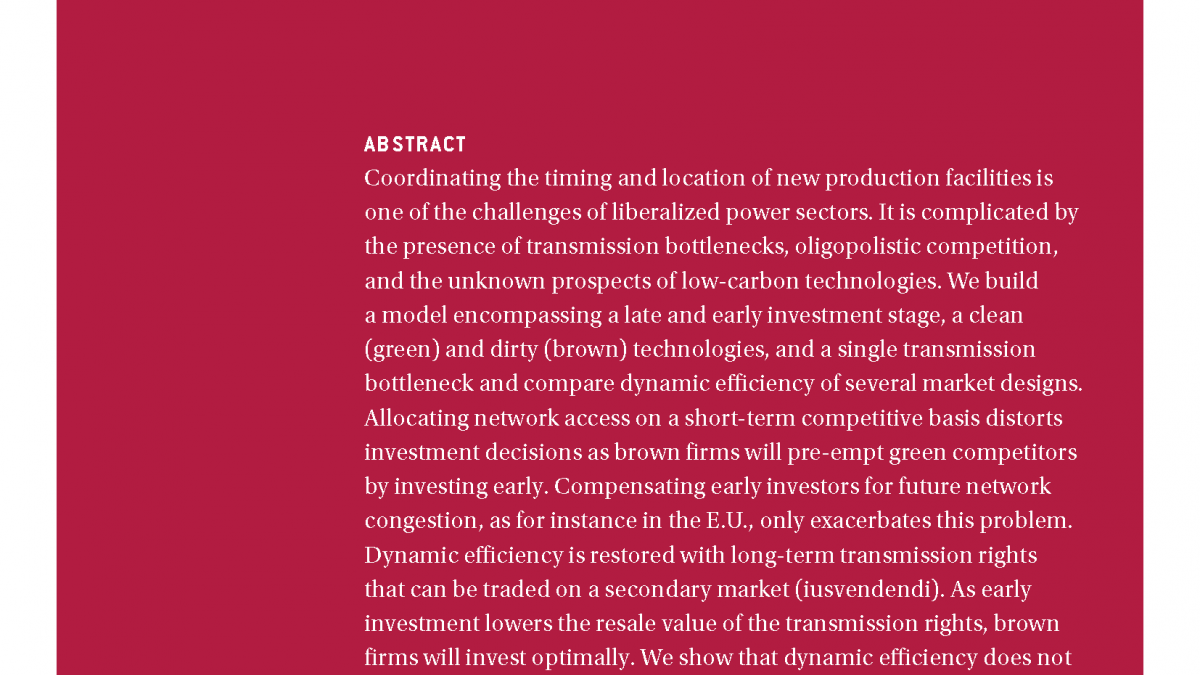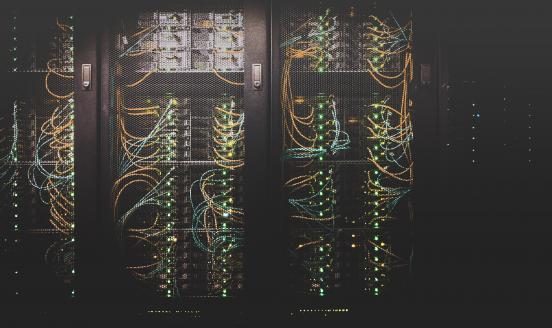Providing efficient network access to green power generators: A long-term property rights perspective
This paper analyses the dynamic efficiency of several types of access regulation of a bottleneck transmission line in electricity markets.

Coordinating the timing and location of new production facilities is one of the challenges of liberalized power sectors. It is complicated by the presence of transmission bottlenecks, oligopolistic competition, and the unknown prospects of low-carbon technologies.
The authors build a model encompassing a late and early investment stage, a clean (green) and dirty (brown) technologies, and a single transmission bottleneck and compare dynamic efficiency of several market designs.
Allocating network access on a short-term competitive basis distorts investment decisions as brown firms will pre-empt green competitors by investing early. Compensating early investors for future network congestion, as for instance in the E.U., only exacerbates this problem.
Dynamic efficiency is restored with long-term transmission rights that can be traded on a secondary market (iusvendendi). As early investment lowers the resale value of the transmission rights, brown firms will invest optimally.
The authors show that dynamic efficiency does not require the existence of physical rights for accessing the transmission line (ius utendi), but financial rights on receiving the scarcity revenues generated by the transmission line (ius fructendi) suffice.



